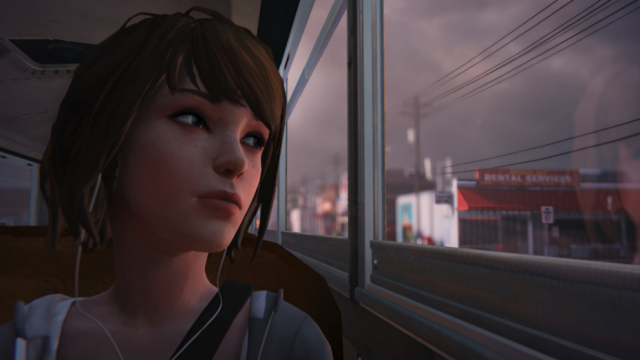After nearly a year striking, unionised video game voice actors just tentatively agreed to end their boycott against 11 games companies, a new Screen Actors’ Guild-American Federation of Television and Radio Artists (SAG-AFTRA) press release said today. Voice actors had demanded residual payments, better protections for their voices, and more transparency about what projects they were working on and, in the tentative agreement, received much, but not all, of what they asked for.
Life Is Strange
Today, SAG-AFTRA announced that these unionised voice actors would now receive better bonus payments, as well as “new transparency provisions”, such as disclosing projects’ code names and genres, as well as whether projects will necessitate profanity, sexual content, violence or racial slurs — all information that should make bargaining easier.
The press release reads:
The terms of the tentative agreement, which was reached early Saturday morning, include a new bonus structure that provides an additional payment to performers. The bonus payment, which is due no later than the release date of the game, is based on the number of sessions worked on each game… The deal also contains an employer commitment to continue working with SAG-AFTRA on the issue of vocal stress during the term of the agreement.
It looks like the residual payments SAG-AFTRA had sought didn’t make it into the new tentative agreement. Voice actors will, however, receive bonus payments, “beginning with a $75 [$AU95] payment on the first session and totaling $2100 [$AU2646] after 10 sessions worked”. It isn’t much, but it isn’t nothing. Keythe Farley, the chair of SAG-AFTRA’s Interactive Negotiating Committee, explained in today’s press release that “the bonus payments we have now are significantly larger now than what we had 11 months ago. And the existence of additional payments beyond your session fee is in the video game world for good, both in our high-budget and independent promulgated agreements.”
The agreement does not include a few things that game companies allegedly sought, including:
a provision that would have fined performers for being late or distracted at session, another that would have required agents to submit performers for low-paying “atmospheric voice” sessions or face fines, and a possible revocation of their union franchise, and another that would have allowed employers to use their permanent staff to do covered work outside of the collective bargaining agreement.
The strike took a toll on some voice actors’ ability to continue in their favourite roles — most prominently, Ashly Burch’s reprisal as Chloe in Life Is Strange‘s prequel. In an interview with Kotaku, Burch described herself as “heartbroken”, explaining that “It feels sort of like you were forced to put your kid up for adoption”. Resident Evil‘s Claire Redfield, played by Canadian voice actress Alyson Court throughout five of the game’s iterations, also did not reprise her role for Resident Evil 2‘s remake.
It’s a small victory for video game voice actors who wanted their efforts recognised in a difficult, demanding and sometimes thankless field.

Comments